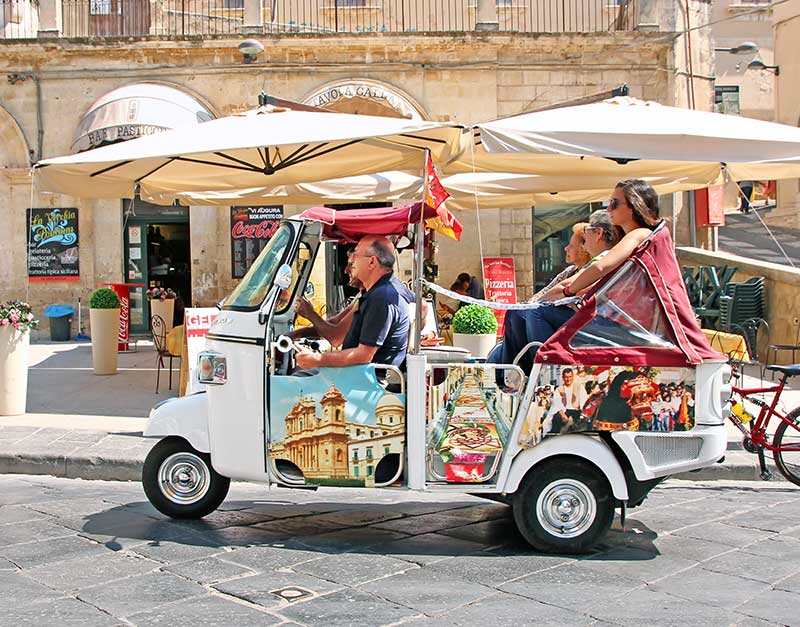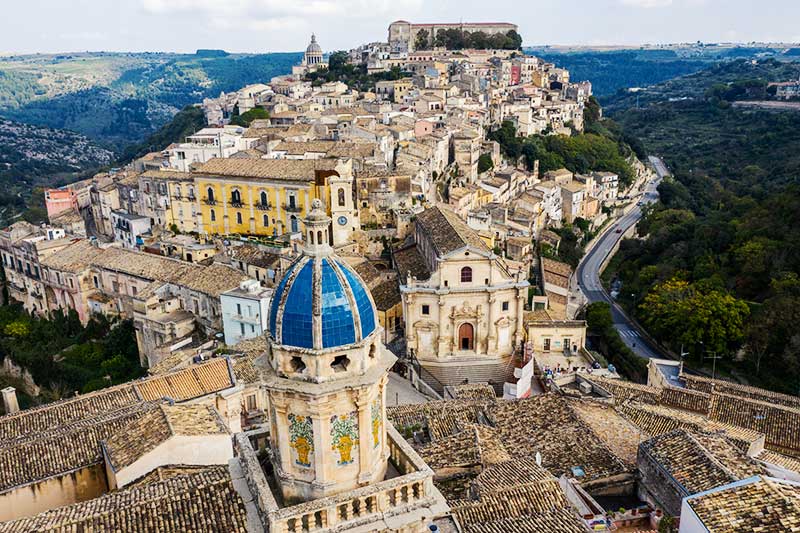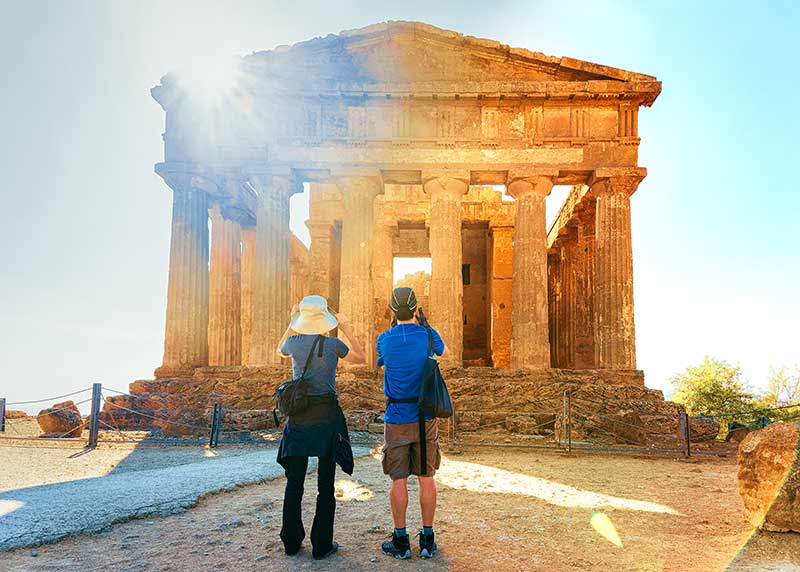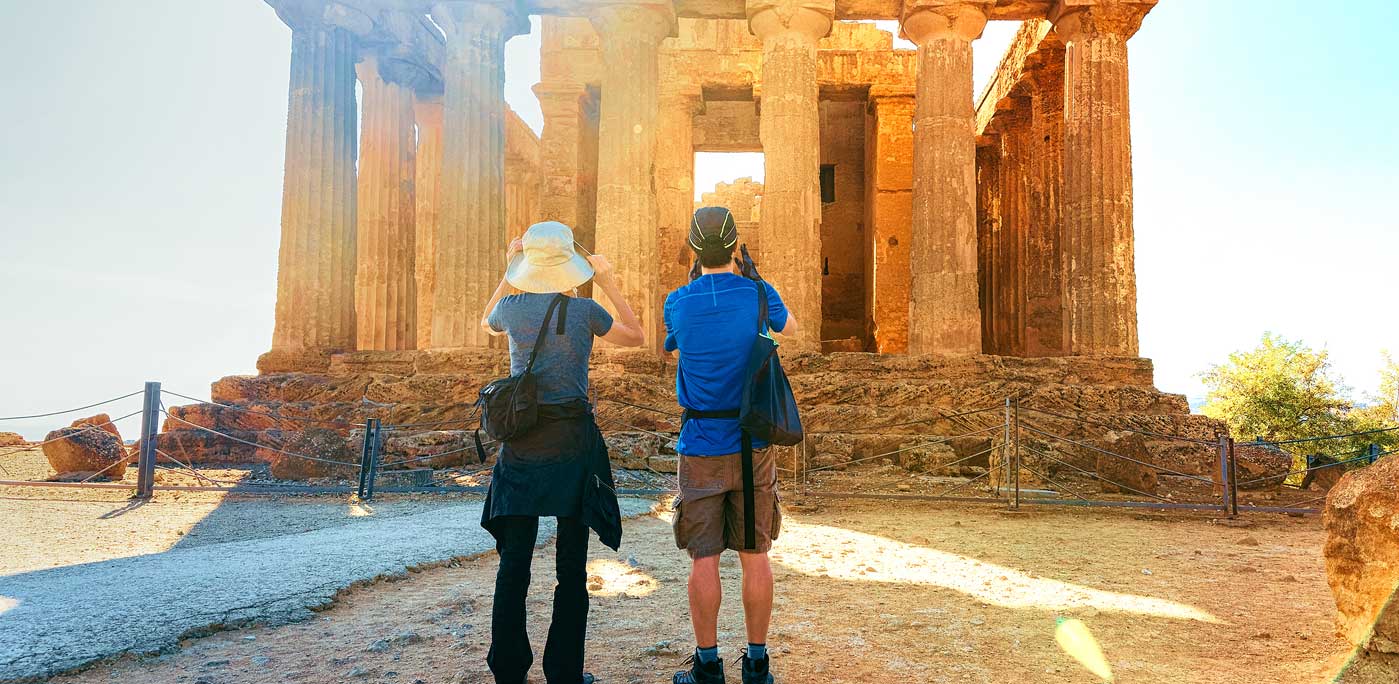The world has been fighting the same enemy. Reality is, there is not such a thing as escaping the virus, but in Italy we’ve finally reached a moment when it’s important to start looking forward and try to reach some semblance of normality again, without forgetting, of course, that we’re still very much at war against an insidious, invisible and deadly evil.
Life needs to go on: with surgical masks, controlled access to stores and social distancing, but it needs to go on. And so, Italy has begun adapting its existence and its routines to an entirely new reality, one that appears all the more foreign to a country were socializing, conviviality and very physical, very factual displays of affection are as natural as breathing.
It’s not only people who need to discover new ways to thrive while being forced to cohabit with the virus, but businesses, too. All sectors of our economy have been hit harshly, but tourism remains the most notorious victim of Covid-19 in Italy: profits dropped by 95% in March and it is believed a total of 20 billion euro (almost 22 billion USD) will be lost by the end of 2020. This is not at all surprising, as the first half of the year saw virtually no traveling taking place and even if restrictions should soon — or so we all hope — allow us to move a bit more freely, 2020 will remains an annus terribilis for Italian tourism, a sector that Il Sole 24 Ore, just last January, had defined “ Italy’s own oil.”

(Photo: Dreamstime)
It’s not all negative, though. Or, let’s put it this way: we should try not to see all negatively. If one thing remained clear through the emergency is that people all over the world love Italy, they truly do, and that many can’t wait to come back. Some may have family ties, others just incredible memories, others still would simply love to see it for the first time: whichever way you put it, Italy remains in the heart and dreams of the world.
This is great news for our tourism, of course, but fear is great and relying only on Italophiles’ desire to come back may not be enough to get the industry going again.
This is why Sicily’s Regional Government has decided to subsidize holidays to all those who’ll choose the island as their destination. The news, The Guardian reported last week, came a few days before the Government announced it hopes to open the country’s borders to tourists for the summer.

(Photo: Dreamstime)
Regione Sicilia decided to invest a total of 75 million euro (about 82 million USD) to boost its tourist sector, after the immense losses it experienced in the first quarter of 2020. It was Manlio Messina, Sicily’s tourism director, to disclose details about the plan — which has still to come officially into being — on national television; he declared that accommodation costs should be in part reduced by offering one free night for a three-day trip (your typical weekend getaway) and two free nights if you decide to stay six days. Vouchers and discounts for cultural and heritage visits or activities are also part of the plan. Messina declared the region is also taking into consideration the possibility to pay for up to half the cost of flights, although this hasn’t been confirmed, yet.
Sicily remains on of the least affected region by the Covid-19 epidemic, with only 2.127 active cases as of the 8th of May, a result obtained also thanks to the timely closure of regional borders imposed by Governor Musumeci shortly after the beginning of the epidemic.
Regardless to what the plan will effectively imply, Regione Sicilia needs to wait, just like the rest of the country, and understand to which extent restrictions will affect people’s freedom to travel during the summer; recently, Italy’s Minister for Tourism and Culture, Dario Franceschini, weighed in on possibilities in an interview with Rome’s Il Messaggero newspaper: “I’ve never said nor thought of closing Italian borders to tourists for 2020 — he declared when commenting on some fake news that did the rounds in Europe two weeks ago — on the contrary, I’ve been working with the rest of the EU’s ministers for tourism to create a set of homogeneous security regulations to allow freedom of movement for all EU citizens.” Still no mention of non-EU visitors, but there is hope.

(Photo: Dreamstime)
A positive outlook, a greatly needed attempt to return to normality soon, for the economy of course, but also for people’s own psychological well being. It is essential, though, to remain realistic and, of course, careful, as pointed out by Franceschini himself, and reported again by The Guardian: “You have to adopt the right balance between safeguarding health and restarting economic and social life. It must be done with the utmost care. We’re moving one step at a time.”
One step at a time. This is the only way we can move forward right now, but knowing that today these steps can be taken seems already like a little victory.
La bellezza della Sicilia a metà prezzo? Potrebbe accadere quest’estate
Il mondo sta combattendo lo stesso nemico. La realtà è che non è possibile sfuggire dal virus, ma in Italia siamo finalmente arrivati a un momento in cui è importante cominciare a guardare oltre e cercare di raggiungere di nuovo qualche parvenza di normalità, senza dimenticare, naturalmente, che siamo ancora in guerra contro un male insidioso, invisibile e mortale.
La vita ha bisogno di andare avanti: con le mascherine chirurgiche, l’accesso controllato ai negozi e l’allontanamento sociale, ma bisogna andare avanti. E così, l’Italia ha cominciato ad adattare la sua vita e le sue abitudini a una realtà del tutto nuova, che appare tanto più estranea a un Paese in cui la socializzazione, la convivialità e le manifestazioni d’affetto molto fisiche, molto concrete, sono naturali come lo è respirare.
Non sono solo le persone ad aver bisogno di scoprire nuovi modi per star bene mentre sono costrette a convivere con il virus, ma anche le imprese.
Tutti i settori della nostra economia sono stati duramente colpiti, ma il turismo rimane la vittima più nota del Covid-19 in Italia: i profitti sono calati del 95% a marzo e si ritiene che entro la fine del 2020 si perderanno complessivamente 20 miliardi di euro (quasi 22 miliardi di dollari). Non c’è da stupirsi, visto che il primo semestre dell’anno non ha praticamente registrato viaggi e anche se le restrizioni dovrebbero presto – o almeno così si spera – permetterci di muoverci un po’ più liberamente, il 2020 rimarrà un annus terribilis per il turismo italiano, un settore che Il Sole 24 Ore, proprio lo scorso gennaio, aveva definito “il petrolio d’Italia“.
Non è tutto negativo, però. O, mettiamola così: dovremmo cercare di non vedere tutto negativo. Se una cosa è rimasta chiara in quest’emergenza è che la gente di tutto il mondo ama l’Italia, l’ama davvero, e che molti non vedono l’ora di tornare. Alcuni possono avere legami familiari, altri solo ricordi incredibili, altri ancora vorrebbero semplicemente vederla per la prima volta: comunque la si voglia mettere, l’Italia rimane nel cuore e nei sogni del mondo.
Questa è una grande notizia per il nostro turismo, certo, ma la paura è grande e affidarsi solo al desiderio di tornare degli italofili potrebbe non essere sufficiente per far ripartire il settore.
Per questo la Regione Sicilia ha deciso di sostenere le vacanze di tutti coloro che sceglieranno l’isola come destinazione. La notizia, ha riferito The Guardian la scorsa settimana, è arrivata pochi giorni prima che il Governo annunciasse la speranza di aprire le frontiere del Paese ai turisti per l’estate.
La Regione Sicilia ha deciso di investire complessivamente 75 milioni di euro (circa 82 milioni di dollari) per rilanciare il settore turistico, dopo le ingenti perdite subite nel primo trimestre del 2020. E’ stato Manlio Messina, direttore del turismo siciliano, a rivelare i dettagli del piano – che deve ancora essere ufficialmente messo in campo – alla televisione nazionale; egli ha dichiarato che le spese di alloggio dovrebbero essere in parte ridotte offrendo una notte gratuita per un viaggio di tre giorni (il tipico weekend di vacanza) e due notti gratuite se si decide di rimanere sei giorni. Il piano prevede anche buoni e sconti per attività o visite culturali. Messina ha dichiarato che la regione sta anche prendendo in considerazione la possibilità di pagare fino a metà del costo dei voli, anche se questo non è stato ancora confermato.
La Sicilia rimane una delle regioni meno colpite dall’epidemia di Covid-19, con soli 2.127 casi attivi a partire dall’8 maggio, risultato ottenuto anche grazie alla tempestiva chiusura dei confini regionali imposta dal Governatore Musumeci poco dopo l’inizio dell’epidemia.
Indipendentemente da ciò che il piano comporterà effettivamente, la Regione Sicilia dovrà aspettare, come il resto del Paese, e capire fino a che punto le restrizioni influenzeranno la libertà di viaggiare durante l’estate; recentemente, il Ministro del Turismo e della Cultura italiano, Dario Franceschini, ha soppesato le possibilità in un’intervista al quotidiano Il Messaggero di Roma: “Non ho mai detto né pensato di chiudere le frontiere italiane ai turisti per il 2020 – ha dichiarato commentando alcune false notizie che hanno fatto il giro d’Europa due settimane fa – al contrario, ho lavorato con il resto dei ministri del turismo dell’Unione Europea per creare una serie di norme di sicurezza omogenee per consentire la libertà di circolazione a tutti i cittadini dell’UE”. Ancora nessuna menzione ai visitatori extracomunitari, ma c’è speranza.
Una prospettiva positiva, un tentativo di tornare presto alla normalità per l’economia, ovviamente, ma anche per il benessere psicologico delle persone. È fondamentale, però, rimanere realistici e, naturalmente, attenti, come ha sottolineato lo stesso Franceschini, e come riportato anche dal The Guardian: “Bisogna adottare il giusto equilibrio tra la salvaguardia della salute e la ripresa della vita economica e sociale. Deve essere fatto con la massima cura. Ci stiamo muovendo un passo alla volta”.
Un passo alla volta. Questo è l’unico modo per andare avanti in questo momento, ma sapere che oggi si possono fare questi passi sembra già una piccola vittoria.

































